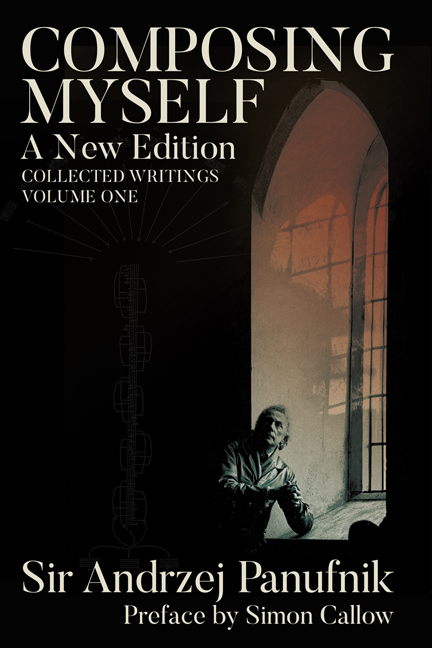13 - New Responsibilities
Published online by Cambridge University Press: 09 January 2024
Summary
The task of helping rebuild musical life in Poland now occupied so much of my time that the prospect of serious composition became even more remote. I had now also been asked to assist in the creation of a State Music Publishers1 by the newly appointed director, Tadeusz Ochlewski, with whom I had collaborated during the Occupation over the distribution and performance of my anti-Nazi songs. He wanted me to help him find and train music-copyists to extract orchestral parts. He also remembered our war-time talks about clarity and precision in the way scores should be printed and was particularly interested in my own pre-war innovation with empty space instead of empty stave-lines where instruments were not playing. The first work to be published this way was my reconstructed Tragic Overture. (Some of my Polish colleagues later followed suit, as did Stravinsky and several members of the international avant garde.)
The government's commitment to the regeneration of national culture suited Ochlewski and myself admirably. As non-Party members, we were simply concerned to further the publication of Polish music old and new to the best of our ability. We took to meeting regularly in the stark office allotted to the project by the authorities, a tiny room with just a small table and a few chairs. As a musician in his own right, a violinist, Ochlewski had not been successful, but, though quite caustic and harsh in manner, he worked for others with absolute devotion and intensity, often continuing through the day and into the night without even pause for food. Once I had tracked down and trained suitable craftsmen, he expected them to equal his own self-sacrifice and dedication.
The results were spectacular. Even the sluggish, bureaucratic government chiefs bowed to his will. The offices of his PWM (Polskie Wydawnictwo Muzyczne) expanded rapidly. Musical works were published by the dozen, orchestral parts produced. Gradually, the organisation emerged as perhaps the largest of its kind in the world, with the highest standards. Of course it remained dependent politically and financially on the Ministry of Culture, and all the musical works we selected had then to be approved by a special committee.
- Type
- Chapter
- Information
- Composing Myselfand Other Texts, pp. 184 - 193Publisher: Boydell & BrewerPrint publication year: 2023



